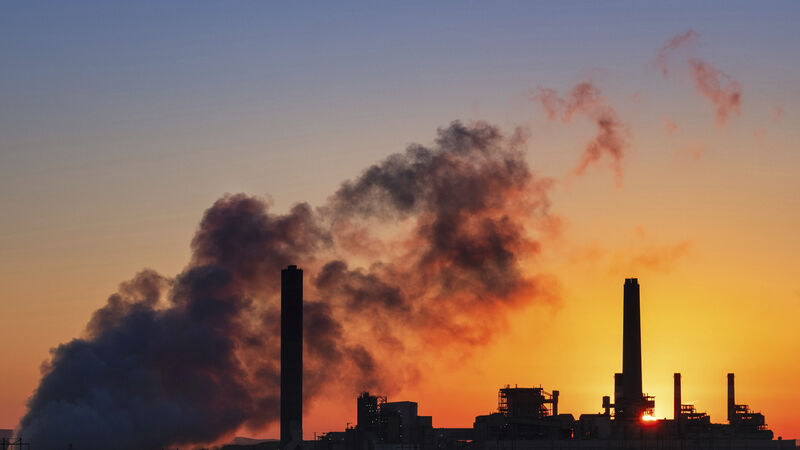Covid pandemic sees 12% fall in Ireland's energy emissions

Oil use fell by 16.5% in 2020, equivalent to 3.6m tonnes of CO2, which was the largest annual reduction in oil use ever. File picture: AP /J David Ake
Energy-related carbon emissions fell by more than 12% last year, as a result of the Covid-19 pandemic, according to provisional figures from the sustainable energy watchdog.
The Sustainable Energy Authority of Ireland (SEAI) published data showing the impact public health measures taken in response to the pandemic, had on energy use.
CO2 emissions for energy use fell 12.4%, or 4.6m tonnes in 2020, meaning emissions from fossil fuels used for energy were the lowest since 1993 and were 31% below 2005 levels.
This marks the biggest annual reduction in CO2 emissions since the depth of the recession in 2009, the SEAI said, with almost half of this reduction coming from international aviation.
Oil products used for transport accounted for the largest reduction in energy use, with the overall energy use falling by 9.2%.
Oil use fell by 16.5% in 2020, equivalent to 3.6m tonnes of CO2, which was the largest annual reduction in oil use ever.
Almost all of the reduction in oil use was in transport, with the total transport energy use down 25.9% last year.
The largest reduction in oil products was in jet kerosene, which was down 64.4% (2.1m tonnes of CO2), followed by road diesel, down 13.6% (1.3m tonnes of CO2), and petrol, down 24.1% (0.6m tonnes of CO2).
Peat use fell by 33.6% (1m tonnes of CO2) mostly through a halving of peat used for electricity generation.
Meanwhile, energy from renewable sources grew by 8.5% in 2020 and the CO2 intensity of electricity fell by 8.8%.
Some 42% of electricity generated was from renewable sources in 2020, 36.1% of which was generated from wind.
The carbon intensity last year is less than a third of what it was in 1990, due to a decline in the use of coal, oil and peat, and more renewables and high-efficiency gas turbines.
John Gibbons, an environmental commentator, said the figures do not represent a change in demand, but suppression of demand.
“This will rebound fully as the economy opens up. What’s required is that we change how we fuel different systems like transport. We need to move away from liquid fossil fuels towards electrification as fast as possible," he said.
"Without transitioning how we fuel our transport sector, it’s just like standing on a hosepipe; as soon as you take your foot off, as soon as normal economic conditions return, then bang, we’re back to exactly where we were. I think we're in for a post-Covid bounce in emissions.”
Mr Gibbons said there has been good progress in the move towards electric vehicles, which he said could solve vehicular emissions over the next five to 10 years.
The increased incorporation of renewables in the energy sector is also welcome, however, he added aviation is the "problem child" and called for an emissions-related tax for the sector.
CLIMATE & SUSTAINABILITY HUB





